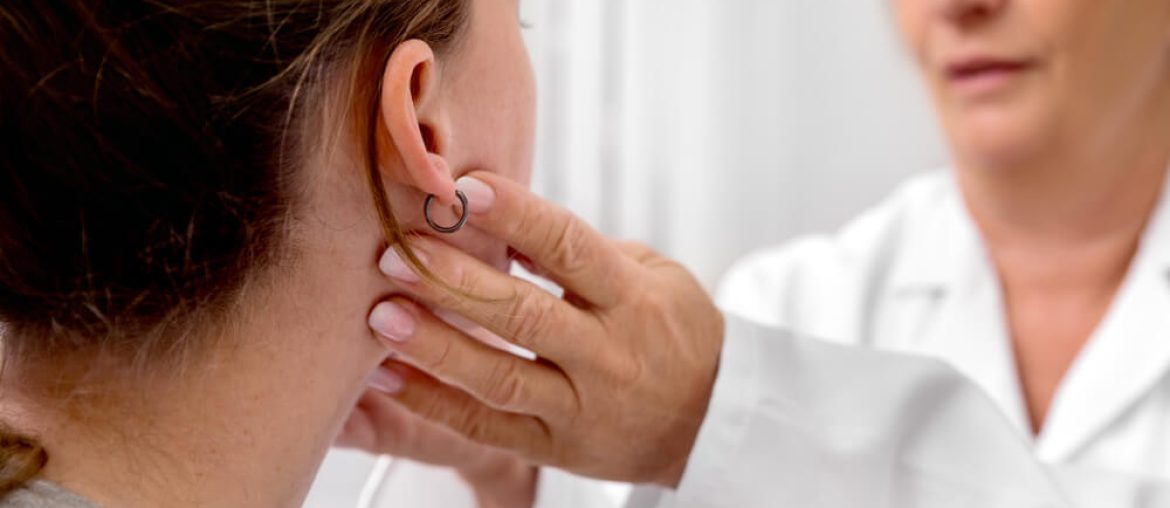Have you ever heard of “the kissing disease”? Mononucleosis (pronounced mon-o-nuke-lee-o-sis, or “mono” for short) got this nickname because people can pass it through their saliva when they kiss. Kissing isn’t the only way you can catch mono, though.
What is Mono?
Mono is the name of an infection that is usually caused by the Epstein-Barr virus (EBV). EBV is a very common virus that many people are exposed to when they’re young. The greatest number of people get mono when they are between 15 and 17 years old. Some people with EBV might not have symptoms, but may still carry the virus and infect other people, causing them to develop mono.
How Does Someone Get Mono?
Kissing a person that has the Epstein Barr virus (EBV) is just one way of getting mono. There are other ways you can get it, and they all involve coming in contact with body fluids (especially saliva) of someone who has the virus.
The virus can be passed through:
- A drink (water bottle, cup, etc.)
- A toothbrush
- A fork or spoon
- Lip balm, lip gloss, or lipstick
- Sexual contact
According to the Center for Disease Control (CDC), viruses that cause mono can also be spread through blood and semen during sexual contact, blood transfusions, and organ transplantations. Most often, however, mono is spread through saliva.
What are the Symptoms of Mono?
People who have mono may have different combinations of symptoms, including:
- Swollen glands (neck and armpits)
- Fever
- Sore throat
- Extreme tiredness/weakness
- Decreased appetite
- Headache
- Sore muscles/body aches
- Swollen spleen and/or liver (in advanced cases)
Is There a Test for Mono?
Your health care provider (HCP) may suggest that you are likely to have mono based on your symptoms and examination such as sore throat, swollen tonsils with white patches, swollen lymph nodes (in your neck), fever and fatigue. Your liver and spleen may be enlarged and sore, and some people get a rash especially if taking antibiotics such as amoxicillin. To make a diagnosis of mono, your HCP will check your blood count and a special “mono spot test.” This test can be negative in the first week of illness and occasionally longer. This test may also stay positive for a year after mono so if your HCP is not sure about whether you have mono, he/she may order a blood test that can show whether you have antibodies against EBV (Epstein Barr Virus) which can cause mono. There are other causes of mono-like illnesses such as HIV, CMV (cytomegalovirus), other viruses, and some drugs.
How Long Will I Be Sick With Mono?
If you have a fever it will usually go away within 10 days. If you have an enlarged liver or spleen, it will usually become normal in 4-6 weeks. Other mono symptoms go away after 2-4 weeks (the length of time varies for each person), but you may continue to feel very tired for about 3-6 months, or even longer. Research has shown that even when a person (who has had mono) feels better, they can still have the virus in their body for a long time.
What is the Treatment for Mono?
Unfortunately, there isn’t a medicine or pill that can get rid of mono, but there are things you can to do feel better.
Things you can do to help yourself feel better while you have mono:
- Get lots of rest
- Drink plenty of fluids
- Eat healthy foods
- Gargle with salt water (but don’t swallow), drink tea with honey, try throat lozenges, or suck on an ice pop if you have a sore throat
- Ask your health care provider if you can take a small dose of acetaminophen or ibuprofen for pain or fever
When Can I Get Back to School and Sports?
You can go back to school when you feel better, which may take a few days to a few weeks. However, you’ll probably still feel tired for a few weeks. Most people get better within a month, but you may need to talk with your teachers or principal if your mono symptoms are severe and are causing you to miss a lot of schools. Tell your health care provider (HCP) about all the different types of physical activities you usually participate in. Your HCP will decide what activities are safe for you to do and when. In general, most doctors agree that people who have had mono should not participate in sports activities during the first 3-4 weeks or until you are completely well, to lessen the chance of your spleen (an organ in the body that filters blood) getting hurt.
Is There Any Way to Prevent Mono?
You can’t always prevent getting mono, but you can lessen your chance by: not sharing your toothbrush, dishes, utensils, and water bottles, and don’t share drinks. If someone you know has mono, be very careful not to share any of these items with them and don’t kiss them either.
If I Have Mono, How Can I Prevent Giving it to Someone Else?
To prevent giving the virus to someone else:
- Cover your mouth if you cough or sneeze
- Don’t share your food, drinks, eating utensils, toothbrush, or any kind of lip product
- Don’t kiss while you are sick (mono can spread through saliva)
- Don’t have sexual contact with someone who has mono


















